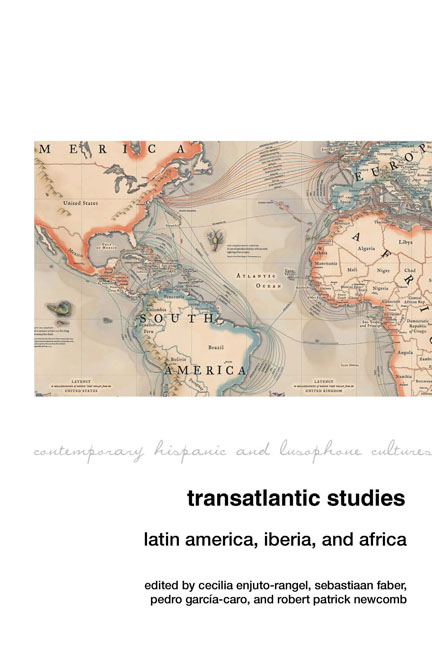Book contents
- Frontmatter
- Contents
- Introduction: Transatlantic Studies: Staking Out the Field
- Transatlantic Methodologies
- Transatlantic Linguistic Debates
- Transatlantic Displacement
- Transatlantic Memory
- Transatlantic Postcolonial Affinities
- Transatlantic Influence
- Epilogue: The Futureâif There Is OneâIs Transatlantic
- Index
17 - Teaching Narratives of Women's Inner Exile in Spain and Chile
- Frontmatter
- Contents
- Introduction: Transatlantic Studies: Staking Out the Field
- Transatlantic Methodologies
- Transatlantic Linguistic Debates
- Transatlantic Displacement
- Transatlantic Memory
- Transatlantic Postcolonial Affinities
- Transatlantic Influence
- Epilogue: The Futureâif There Is OneâIs Transatlantic
- Index
Summary
During the Franco dictatorship in Spain (1939–75) and the Pinochet regime in Chile (1973–90), authors living in exile wrote an extraordinary number of novels and memoirs about the emotional and physical divides produced by the violent military coups. But, as we know, thousands of dissidents remained in Spain and Chile and experienced an internal exile, enduring disconnection and loss within their own homelands. In his 1980 study Literature and Inner Exile: Authoritarian Spain, 1939–1975, Paul Ilie defined inner exile as an isolating psychological state more than a geographic one (1980: 2). His analysis of post-war novels written by men (Marse, Goytisolo, and Benet) illustrates that to live apart involves political disenfranchisement, physical and economic hardship, and the mental suffering produced by identification with values in conflict with the prevailing ones. Zatlin expands Ilie's concept by analyzing representations of nonconformist adolescent women within a traditional, male-dominated society (Zatlin 1988: 3–9). Zatlin traces patterns of alienated young protagonists in novels written by women (Laforet, Matute, Martin Gaite, Roig) and identifies two models: one spotlighting the actively nonconformist heroine, and the other foregrounding the passive immobile figure. Zatlin's gendered approach to the theme of inner exile, and her argument that both models present a powerful message of political protest, transcend temporal and national boundaries. If we compare representations of Franco's Spain and Pinochet's Chile, we find striking parallels and rich opportunities for teaching and research that push against the limits of narrowly construed interpretations of dictatorial histories.
This transatlantic study brings together literary criticism and feminist theory to rethink narratives of dictatorial violence and to conceptualize representations of inner exile. In doing so, this chapter offers a new critical framework and pedagogical approach to teaching Transatlantic Studies. Students learn that Chile and Spain share histories of political collaboration at many levels and among different groups that have both shaped repressive policies and resisted them. By examining how contemporary Spanish and Chilean women writers represent dictatorial pasts, we gain insight into the link between political and gendered violence underpinning both military regimes. Franco and Pinochet made the fight against communism and the defense of the cult of patriarchal leadership some of the states’ main priorities. Without collapsing difference, we address political systems and artistic movements within a wider cultural, political, and historical framework.
- Type
- Chapter
- Information
- Transatlantic StudiesLatin America, Iberia, and Africa, pp. 206 - 217Publisher: Liverpool University PressPrint publication year: 2019

